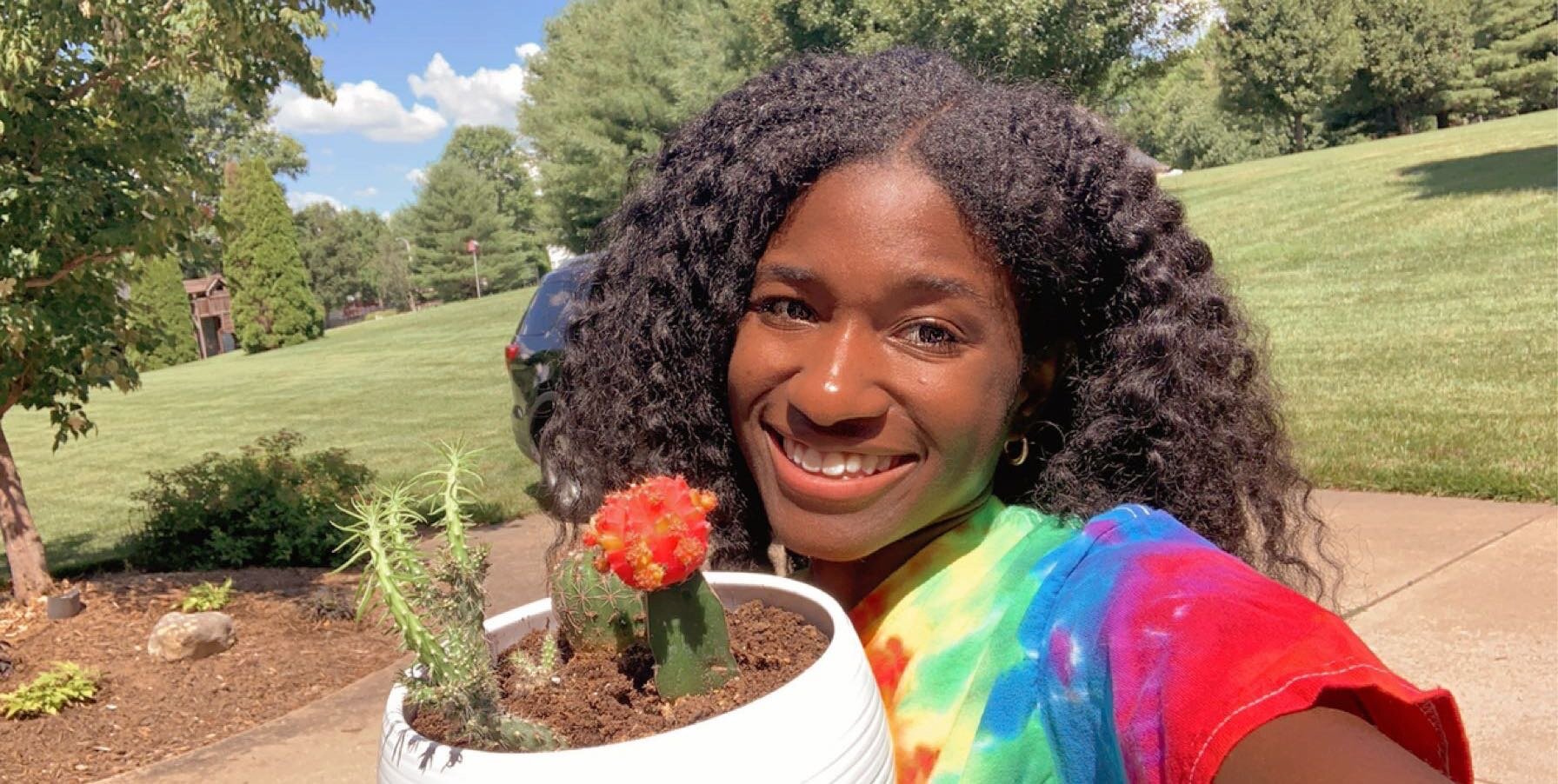Abril Hunter
Undergraduate Fellow
You have never been to Tyson. Can you describe your experience of seeing the field station through the lens of dozens of interviews you conducted with community members on Zoom?
“I almost feel like I’ve been there! People would talk about being in the woods and hiking, the work they would do on the back deck, and I’ve looked at pictures. I’ve learned not so much about Tyson physically, but the community that it fosters. So many people I’ve talked to have spoken about its community values. I've even felt that this summer at our morning meetings; it just feels like a very open space where we can literally communicate about anything. I’ve gotten a vibe about what the organization is and what it does. It’s a welcoming place that shapes people into who they want to be, that maybe they didn’t know before coming there.
I’ve talked to a number of people in Biology. Tyson has been a place where they can do biology work and find a career in something that’s not medicine. They can do what they love, whether that’s evolutionary ecology or conservation biology or microbiology and do it in a way that is valid and can be sustained for a long time.
Tyson also helps you think about why that work might matter beyond your own interest in it. You do this cool research but you also work on conveying it to others. Maybe you think about it like Susan does, in terms of how the scientific knowledge might be made best accessible to high school students. Or you learn how to write a technical paper but also make it compelling to a general audience.”
You are interested in marginalized communities who live with the presence of toxins in their neighborhoods. Have you found skills this summer which will help you pursue that work?
“Yes. I love talking, just in general. I have a mentor, a graduate of my school (Florida State University) who has done urban planning work with marginalized communities in Flagstaff, Arizona (work that I’m considering for my Master’s degree). A lot of times people didn’t want to talk to her because they saw her as a white savior or someone who’s trying to fix their community without understanding their problems. She’s conveyed to me the importance of having really good communication skills. Through doing Tyson interviews I’ve learned to figure out what people care about, by listening. Then I’m able to ask them questions about what is truly important to them. Now when I’m talking to someone, I’m listening also.”

